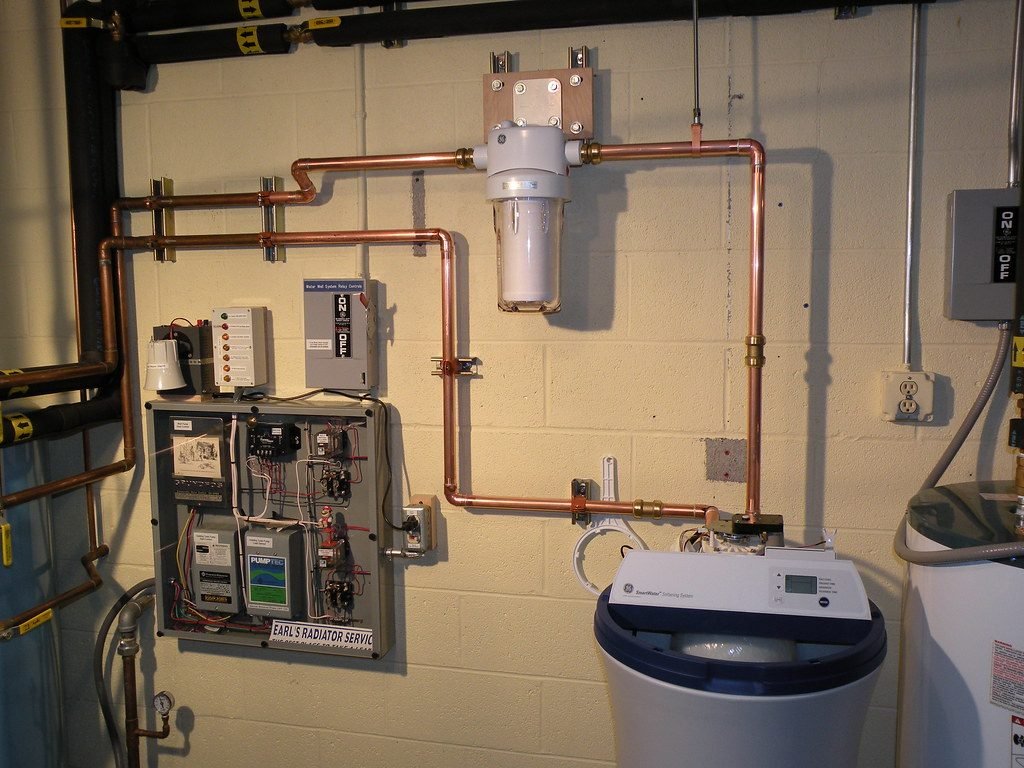When you need to plan to put in or replace your water softening system; there are things you need to look at and remember. The best system is one that is compatible with your home and environmentally sound.
What is Hard Water?
The number of minerals in the water determines how hard the water. The minerals found in water can include calcium, bicarbonates, magnesium carbonates, and sulfates. Hard minerals in water can be healthy when ingested into the human body, but they can destroy the pipes of the home or the business without a water softening system.
What is Soft Water?
Soft water has fewer minerals through the difference of region or the process of extraction. Soft water is the best for homes and businesses as they do not damage the pipes and sinks. The minerals collect in the pipes and damage and block them if unfiltered for extended lengths of time.
What You Need in a Water Softening System
Water softening systems are common in areas where there is harder water in the ground. The systems can get installed in basements, garages, and utility closets. A system built for an entire house is larger than other systems. All the systems are similar no matter what the size.
The water softening systems have tall, slender tanks that have a separate brine filter. The tank connects directly to the home’s water supply with a brine tube connecting to a water softener tank. The entire system has a separate tube for the home discharge to remove the remains of the salt or potassium chloride that helps to process the water.
All the remains discharge into a separate dry well or drain. You will need to check regulations for your area for specifics on what the region requires for water softening systems. They often have strict requirements.
Family Size
When you are picking out a soft water treatment system, you need to understand how the system works. You also need to understand how different systems work. A soft water system removes hard minerals by passing them through a salt filter.
The saltwater binds to the calcium and magnesium as it passes through the filter and passes outside the water tank. Using salt can be problematic for people on low-salt diets for health reasons such as high blood pressure and heart disease. A potassium chloride system is one way to filter water without the salt.
Water softening systems requirements are available through your local municipal codes. Some places do not allow water softening system installation. The municipalities have restrictions for the salt and resins a good water system discharges. Looking up the restrictions for your area before purchasing a system is advisable.
Water Usage
The correct size tank requires knowledge of how the home and your family use the water in your home. The tank size calculates the amount of water and the type of water softener needed. Most people use around 80 gallons of water a day between showers, laundry, and consumption.
By doing the math, a family of four with two bathrooms will require around 320 gallons of water a day. The amount of water that is available and the mineral content varies if you are on a well or public water stores. The amount of hardness of the water averages around 10 grains of salt or potassium chloride, which means each home, requires 3,200 grains a day for that family of four.
Regeneration
How your system regenerates and how frequently it is a determining factor for selecting a water softener system. There are three different settings for a water softener system: automatically, manual, or on a timer. An automatic system is set electronically on a schedule you get to select.
A manual system operates by hand when you want it to run. A system set on a timer is set to run at the same time on the same day each week. Most people go for an automatic system for its flexibility and convenience. It is programmed to run when it would least impact the household, such as in the middle of the night the system can set to what the home needs.
Ease of Use
Using a regeneration system that is on a timer removes the requirement for a manual system. It makes sure you do not forget to change filters or to replenish the salt or potassium chloride in the brine tank. Having a water softener system means also having the required salt or potassium chloride on hand for when it needs replenishing.
The Saltless Water Softener System
A saltless water softener system or a descaler does not use salt to filter the water. Most often, Potassium Chloride is the, but there are alternative systems under development. These other technologies filter water through electronic pulses or magnetic treatments.
The purpose of the filters also helps remove anything added to the water from its use including detergents from washing clothes to the soap you use to wash your hair. Salt-free water systems filter the water, but the minerals remain in the water. They are not true filters; they are water conditioners.
Most salt-free systems use hard crystals to filter the water. The crystals don’t adhere to the surfaces of the pipes and tubes. One of the main reasons to install a salt-free system, aside from improved health reasons, is that the system is maintenance-free.
Saltless Water Softener Systems vs. Salt-Based Water Softeners
A salt-based water softener system uses resin beds that have negatively charged ions to remove hard minerals like magnesium and calcium from your home’s water. The system uses salt to clean the water and has a bed of resin to regenerate the water. Positive ions of sodium trap the hard minerals in the resin bed. Extracted and filtered water separates into a removal tube to drain it from your home.
Salt-free systems are controversial because not all are as effective as a salt system. They also do not remove hard water minerals. Capturing the minerals, as in a salt-based system, does not happen. There is also no need to purge them from the system and regenerate the filters — the water changes to allow the minerals to remain, not removing them.
Magnetic Water Softener Systems
One of the systems under review as an alternative is a magnetic water softener system. They detect the hardness in the water and use magnets to remove them. While this is a terrific idea, there are still flaws in the system, and studies require proof the effectiveness of the system. The system is also incompatible with a lot of the current water systems in place.
Final Thoughts
Do proper research into each system before selecting one that works for your home. Make sure you know what the regulations are before you proceed. The most environmentally sound system is one of the best to have in a home though it does come with a higher price tag.
 World inside pictures Collect and share the best ideas that make our life easier
World inside pictures Collect and share the best ideas that make our life easier








